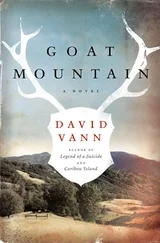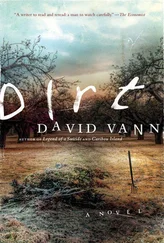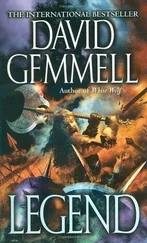David Vann - Legend of a Suicide
Здесь есть возможность читать онлайн «David Vann - Legend of a Suicide» весь текст электронной книги совершенно бесплатно (целиком полную версию без сокращений). В некоторых случаях можно слушать аудио, скачать через торрент в формате fb2 и присутствует краткое содержание. Год выпуска: 2009, Издательство: Penguin Books Ltd, Жанр: Современная проза, на английском языке. Описание произведения, (предисловие) а так же отзывы посетителей доступны на портале библиотеки ЛибКат.
- Название:Legend of a Suicide
- Автор:
- Издательство:Penguin Books Ltd
- Жанр:
- Год:2009
- ISBN:нет данных
- Рейтинг книги:3 / 5. Голосов: 1
-
Избранное:Добавить в избранное
- Отзывы:
-
Ваша оценка:
- 60
- 1
- 2
- 3
- 4
- 5
Legend of a Suicide: краткое содержание, описание и аннотация
Предлагаем к чтению аннотацию, описание, краткое содержание или предисловие (зависит от того, что написал сам автор книги «Legend of a Suicide»). Если вы не нашли необходимую информацию о книге — напишите в комментариях, мы постараемся отыскать её.
follows Roy Fenn from his birth on an island at the edge of the Bering Sea to his return thirty years later to confront the turbulent emotions and complex legacy of his father's suicide.
Legend of a Suicide — читать онлайн бесплатно полную книгу (весь текст) целиком
Ниже представлен текст книги, разбитый по страницам. Система сохранения места последней прочитанной страницы, позволяет с удобством читать онлайн бесплатно книгу «Legend of a Suicide», без необходимости каждый раз заново искать на чём Вы остановились. Поставьте закладку, и сможете в любой момент перейти на страницу, на которой закончили чтение.
Интервал:
Закладка:
On my break from rinsing out tubs, I talked of breeds and life spans with an old man who had stopped to watch, of place and home while the man waited for the time he could return. Trouble there, he hinted, but I didn’t ask questions. There were oil stains on the man’s vest and hands, his thick nails yellow-brown. His baseball cap was of the Alaska State Bird — the Mosquito — and his eyes were marbled red.
Though we hadn’t been introduced, I knew who this man was; I had been in Ketchikan three weeks now and looking for a way to meet him, because his wife was the receptionist my father had slept with, a kind of turning point, I thought, in all our lives. Her name was Gloria Sills, though she had married him and taken his name, and his Bill Douglas. I was planning to invite them both to dinner, to talk with her and maybe tell her who I was.
“Timber, I worked in originally,” Bill was saying. “Not a good business anymore.” He was the kind of coherent drunk who told everything to anyone. Bill hadn’t officially told me even his name, but he’d told me he was looking for a job, that he’d been doing odd jobs since he retired but the garage he’d picked up work at for the last eight years had closed down. Amway hadn’t brought in the diamond rings as promised. Instead, because of overinvestment in products he couldn’t sell and time lost from other work, he’d had to sell his house and lived now with his wife in a trailer. He had no Cadillac, nor even a pickup truck. He did have an old Chevy Monza, rusted out, that needed a few parts. His wife had become more bitter than he had thought possible.
“She’s a wonder, all right,” he said, chuckling. “I didn’t know she had it in her.”
I smiled with him. Absurdity is all that makes grief bearable.
“So how many you let out each year?” Bill asked. And he pointed to the nearest pool of fingerlings.
“Fifty to sixty thousand,” I told him, “and we take in most years about two hundred and fifty, maybe three hundred. But I just got on here. This is my first season.” The returning salmon were in concrete pools closer to the river, where they came up the shallows, their dark backs exposed above pebbles and ripples, the small humpies and reds mixed in with the great kings over three times their size. Leaving snake tracks in the water, they slipped through a narrow chute to leap over four low concrete walls against the current — simulated waterfalls — until they had so packed the slim borders of the final pool that many fell back out and had to leap again. They were solid and earnest, single-minded, pure muscle decaying yet elegant in its movement.
“Bill Douglas is the name,” Bill said. He put out his hand and we shook.
“Roy Fenn. My dad, Jim Fenn, used to live in town here. He was a dentist. Did you know him at all?”
“When was this?”
“Until ’72, I think.”
“Sounds familiar, maybe,” Bill said. “He might have been down in the county building on Third Street, with Doc Iverson and some other dentist. Sound right?”
“That was him. My grandfather caught a big halibut once — two hundred and fifty or sixty pounds. There was a picture of the three of us on the front page of the paper, three generations standing next to one very large fish.”
Bill chuckled.
“Does that sound familiar at all?” I asked.
“Could be,” Bill said, wiping the corners of his mouth with his handkerchief. “Could be.”
“Well,” I said. I was unsatisfied. I felt displaced by the fact that no one really remembered us in this small town.
“Mind if I take a closer look?” Bill asked.
“No, go ahead.”
We walked over to the nearest pool and watched king salmon fingerlings leap into the two-foot stream of a hose. Even at two and three inches, they looked exactly as they would full-grown, perfect miniature replicas, and I couldn’t help but see these great fish leaping forty, fifty feet in the air at a speed that defied normal gravity. Their falls were not suspended but vanished in a wink. In pairs and threes or singly, tiny slivers of light. When I had come late and turned the flashlight on their silvery-blue sides and eyes, even then they were leaping.
Bill dipped his hand in and the fingerlings caved one side of their ring to avoid him. “Hard to believe those are kings,” he said.
His hand removed, the circle re-formed. “I came here when I was twenty-two. That was in 1946. I arrived on the ferry in a red Ford pickup. Even the hubcaps were painted red.” Bill shook his head. “I was pretty interesting then. I wore cowboy boots.”
“Maybe that’s what I need,” I said. “Cowboy boots and red hubcaps, and then I’ll be all set.”
Bill wiped his hand on his jeans. “They came with some other things, too, unfortunately. You’d have to be a drunk and have no money and marry a woman you met here, mostly because you were scared.”
“Scared?” I asked.
“Yep.” Bill zipped his jacket and walked around the pool, bent to look at the pump and hose, then the leaping. “Ever find any of these on the wrong side?”
“’Fraid not,” I said, and smiled, though I had already been asked that question a few times now. I wanted more about his wife, too. “Would you like to come for dinner sometime, you and your wife?” I asked him.
“What’s that?”
“Sorry. That sounded kind of sudden, I guess. I need to get back to work here, but I was thinking I’d invite you and your wife over for dinner, if you’d like.”
“That’s a nice offer,” Bill said. “I’ll give you my phone number, and you can talk to the wife.”
My father was an insomniac. He once told me about an experiment in which thousands of mosquitoes in a large tank were exposed to flashes of bright light at odd hours. For many of the mosquitoes, one bad night knocked them off-kilter for the rest of their short lives. Perhaps they seemed less focused in the way they buzzed along the tank’s glass walls afterward, wobbled a little or hung at odd angles, and certainly they no longer slept normally, though who ever thought of mosquitoes sleeping? My father told this story as if it explained him. One bad night, or perhaps he was claiming to be a visionary. Or perhaps he simply felt a bit odd. The only real solution, of course, was that he thought this little tale funny, as he did all the other little tales. Everything my father had left me vanished. I glanced at the remains and they shifted the light until opacity became translucence and I could see only a diffusion of the unparticular ground beyond, the clutter that promised but gave nothing.
I sometimes walked up the hill to visit the house I had lived in as a child. Up on a slope set between two mountains, the small house that once had been bordered on two sides by forest was now dwarfed by a dozen two-and three-story dark wooden houses with stained glass and gazebos. The view of the channel and ranges beyond was blocked by lower-cost developments. The house had not been painted in the twenty-five years since I had left, nor the fence repaired. The green my father and mother and I had applied had decayed to show pink beneath and, beneath that, white and, finally, bare wood. The roof showed tar paper, the metal screen door and mailbox at the street both stood at angles, though each distinct, the pavement of the driveway had become its own map of small islands, and the fence hung bare where it hung at all. The current residents remembered my family and invited me in, but there were no memories here, only the foreign stains of smoke, pets, food, and children, cans and clothing strewn everywhere across the floor. The cherry tree in back, which I remembered as very tall, since I had climbed, hidden in, and fallen from it, stood maybe ten or twelve feet, narrow and unimpressive. The tall fence came to my waist. Memories are infinitely richer than their origins, I discovered; to travel back can only estrange one even from memory itself. And because memory is often all that a life or a self is built on, returning home can take away exactly that.
Читать дальшеИнтервал:
Закладка:
Похожие книги на «Legend of a Suicide»
Представляем Вашему вниманию похожие книги на «Legend of a Suicide» списком для выбора. Мы отобрали схожую по названию и смыслу литературу в надежде предоставить читателям больше вариантов отыскать новые, интересные, ещё непрочитанные произведения.
Обсуждение, отзывы о книге «Legend of a Suicide» и просто собственные мнения читателей. Оставьте ваши комментарии, напишите, что Вы думаете о произведении, его смысле или главных героях. Укажите что конкретно понравилось, а что нет, и почему Вы так считаете.












